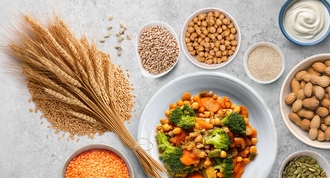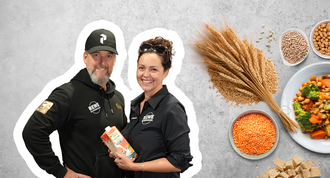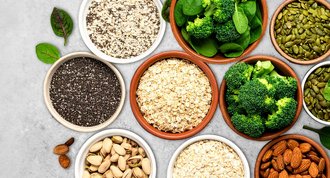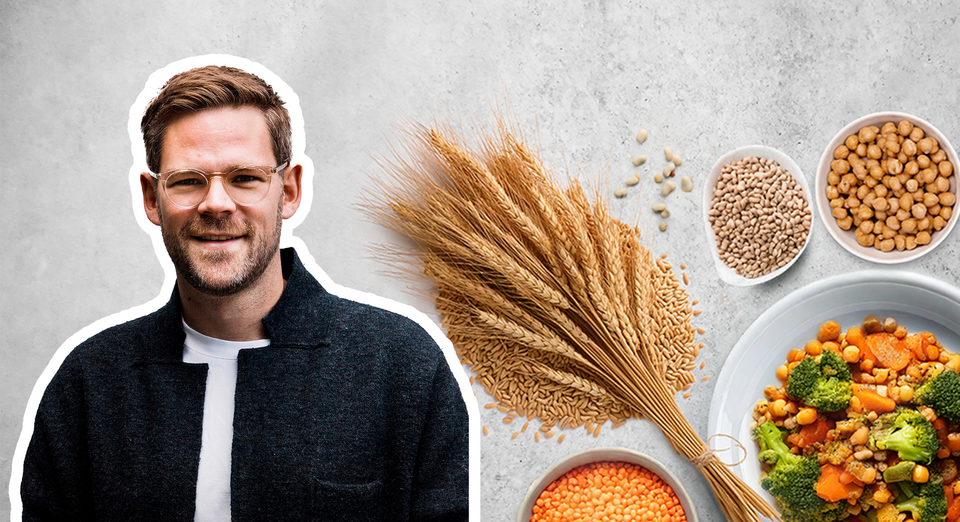
In view of climate change and the growing world population, it is becoming increasingly important to transform the food system. Innovative product ranges such as alternative protein sources are the speciality of Clément Tischer, Head of FoodTech at REWE Group. Here he shares his thoughts on the necessary nutritional turnaround.
one: As Head of FoodTech, you are always on the lookout for the latest trends for more sustainable nutrition. Which innovation has recently caught your attention?
Clément Tischer : One innovation that has particularly excited me recently is from Project Eaden. This start-up takes plant-based meat alternatives to a whole new level, both in terms of flavour and technology. Using a unique fibre technology, they manage to recreate the texture and bite of meat so authentically that even die-hard ham and sausage lovers are surprised.
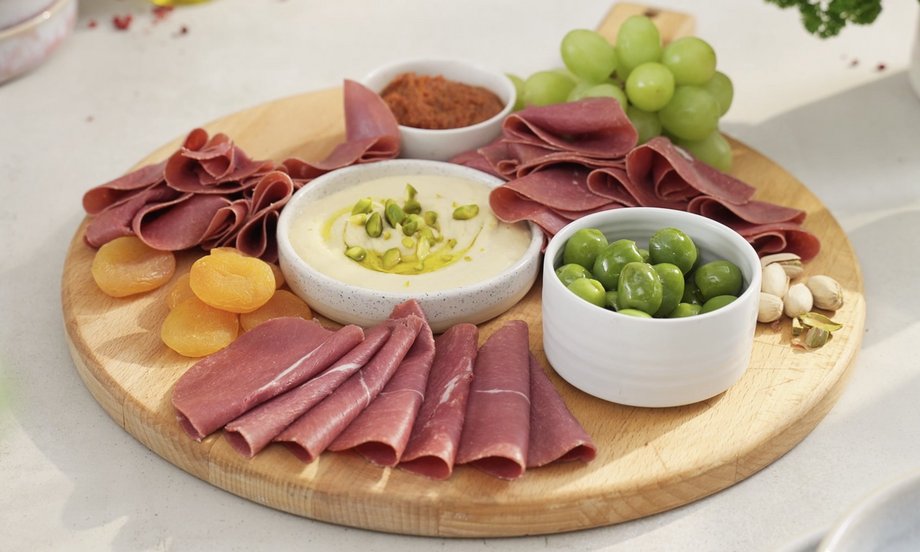 © Project Eaden
© Project Eaden
I find the approach particularly exciting: highly scalable high-tech from the textile industry meets FoodTech to create a sustainable solution with real added value. Because if we really want to change our food system, alternatives not only have to be environmentally friendly and uncompromisingly delicious, but also affordable for everyone.
Advances in fermentation technology are just as promising. In addition to our latest collaboration with Project Eaden, we also have partnerships with Infinite Roots and Formo. Two companies that are using innovative fermentation processes to develop next-generation sustainable foods. These and many other technologies that we are actively pursuing have the potential to fundamentally transform the food industry and facilitate access to more environmentally friendly, resilient products.
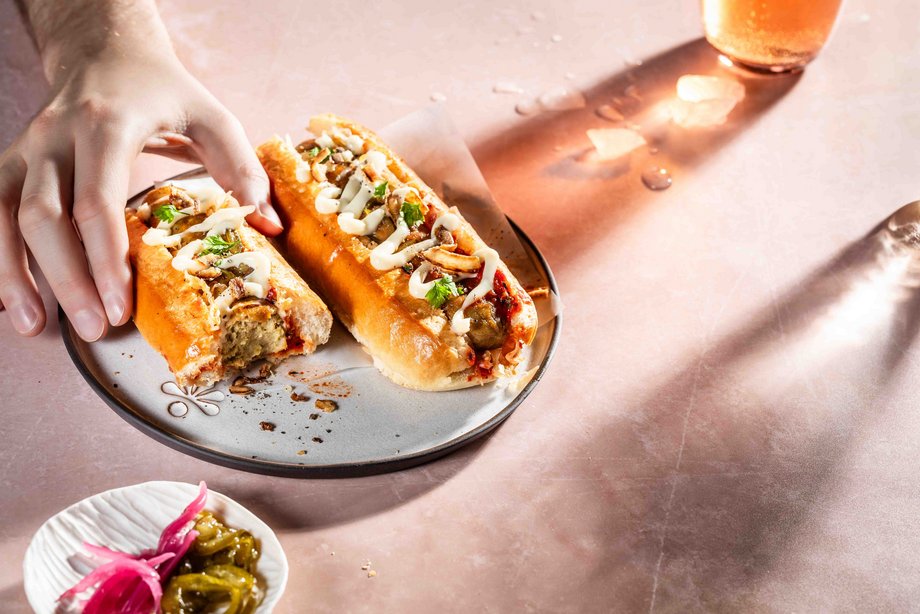 © Infinite Roots
© Infinite Roots
Infinite Roots, for example, combines traditional fermentation techniques with innovative approaches to produce sustainable food based on fungal biomass. Their locally produced protein products are environmentally friendly and also impress with their high sensory quality.
Formo, on the other hand, is a Berlin-based biotech start-up specialising in the development of animal-free cheese alternatives. Formo uses precision fermentation to produce real milk proteins without the use of cows, producing cheese that is indistinguishable from conventional cheese in terms of flavour and texture.
Planet A Foods, a Munich-based start-up with which we cooperate, also uses fermentation technology for an innovative chocolate alternative called ChoViva. This does without cocoa beans and is instead based on regionally grown ingredients such as sunflower seeds, which are processed using a unique method. The end product is similar to conventional chocolate in terms of flavour and consistency, but has a significantly lower carbon footprint.
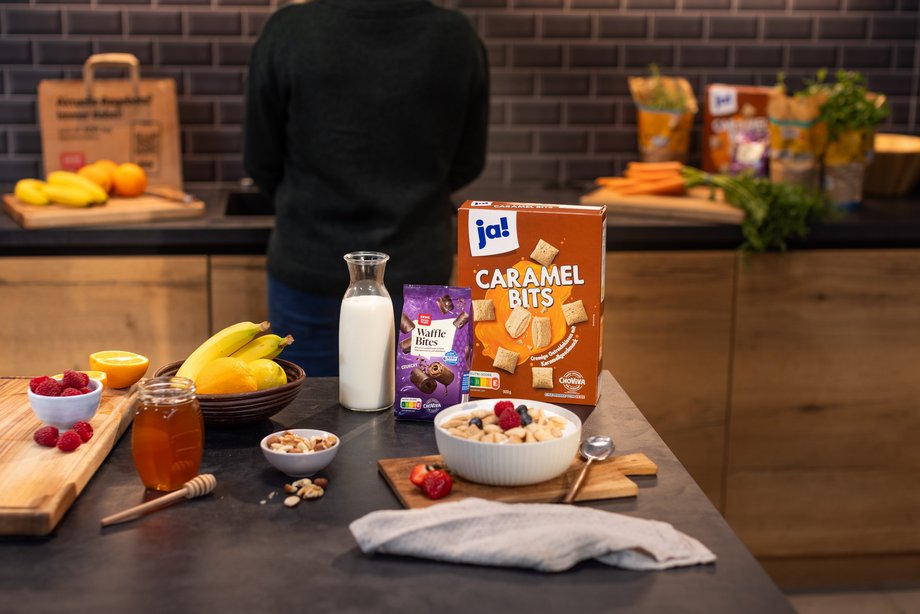 marc Bright
one: There are many reasons for the search for alternative proteins. Animal welfare and environmental protection, as well as consumer demands, have changed in recent years. The research and promotion of more climate-friendly technologies was also welcomed in many party programmes for the German parliamentary elections. What are the indications that this market is gradually moving out of its niche?
marc Bright
one: There are many reasons for the search for alternative proteins. Animal welfare and environmental protection, as well as consumer demands, have changed in recent years. The research and promotion of more climate-friendly technologies was also welcomed in many party programmes for the German parliamentary elections. What are the indications that this market is gradually moving out of its niche?
Clément Tischer : Alternative proteins are increasingly being accepted by consumers, as awareness of their own ecological footprint and ethical aspects has increased. This growing demand is leading to increased investment and more intensive research. We are currently seeing huge advances in terms of technology and flavour, making plant-based products such as pea and wheat protein increasingly attractive and competitive. New technologies, as described above, offer great potential to further reduce remaining flavour, sensory and functional differences.
We are convinced that developments over the next few years will lead to substitute products for animal products and also alternatives for critical raw materials becoming increasingly economically attractive and competitively priced. This will make it more likely that these alternatives will leave their niche status behind and reach the mass market.
I am therefore also immensely pleased about REWE Group's recently adopted protein strategy. It underpins the conviction with which we are approaching this topic. This includes, for example, further optimising our product ranges and communicating with our customers in an even more targeted manner. We will not play animal and alternative proteins off against each other. This is also an important signal in favour of local agriculture.
one: Let's take a look abroad: in Denmark and the Netherlands, large sums of money are already being paid out to start-ups in the field of alternative proteins. Sums have also been made available in the federal budget. At the end of 2024, Germany and Denmark called on the EU Commission to formulate a European protein strategy. You work closely with start-ups: How do you assess the initial situation for them in this country and what further political steps would be desirable?
Clément Tischer : Germany has great potential to become a leading location for sustainable food innovations. Customer acceptance is high and the FoodTech scene in Germany is a global leader in the development of innovative technologies, although these are often very capital-intensive and time-consuming. Venture capital and alternative funding measures are crucial to bridge the time to market maturity or market authorisation.
The funding provided so far is a good start, but further support is needed. This includes, for example, real-world laboratories, economic incentives for plant-based alternatives and targeted funding for scaling up innovative approaches. At the same time, simplified and transparent regulation is essential to make it easier for start-ups to enter the market and accelerate the commercialisation of new technologies.
In particular, the current authorisation procedures and regulatory processes for innovations that fall under the novel food regulations continue to pose major hurdles. These urgently need to be optimised, as lengthy procedures require high capital reserves and place a considerable burden on start-ups. Otherwise, there is also a risk of migration abroad, which would weaken Germany as a centre of technology. Anyone who is serious about resource-conserving food production in Germany should also strengthen confidence in the innovative strength and safety standards of domestic companies. This is where we stand alongside our co-operation partners.
Clear, transparent and innovation-friendly framework conditions are required in order to fully utilise the potential of the future technologies mentioned above. Co-operation between politics, business and science is crucial in order to promote the development of a sustainable food industry.

